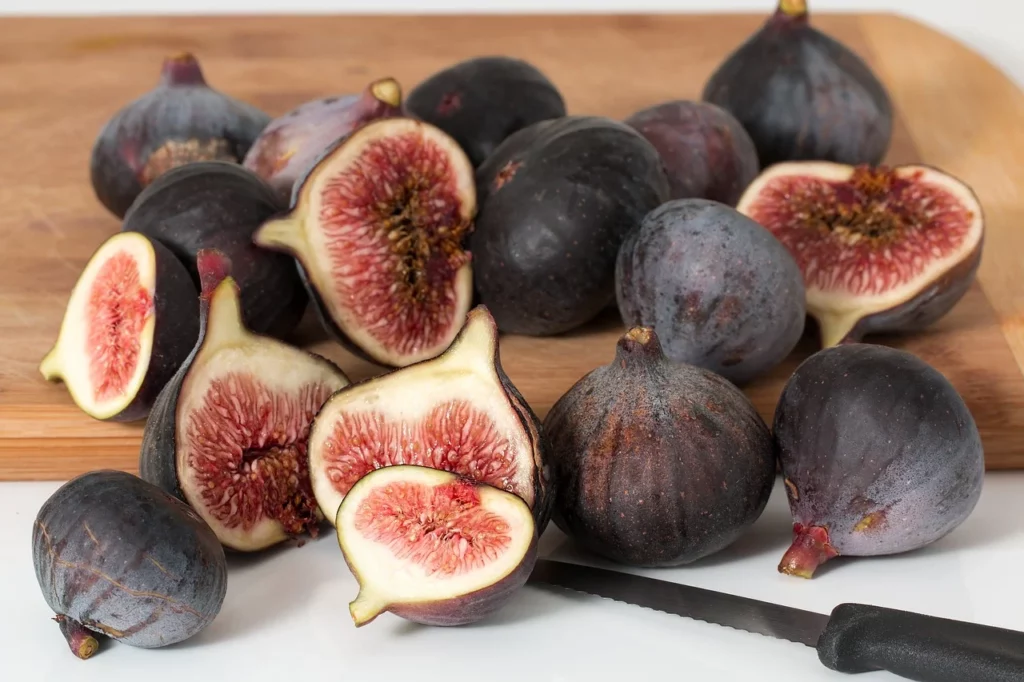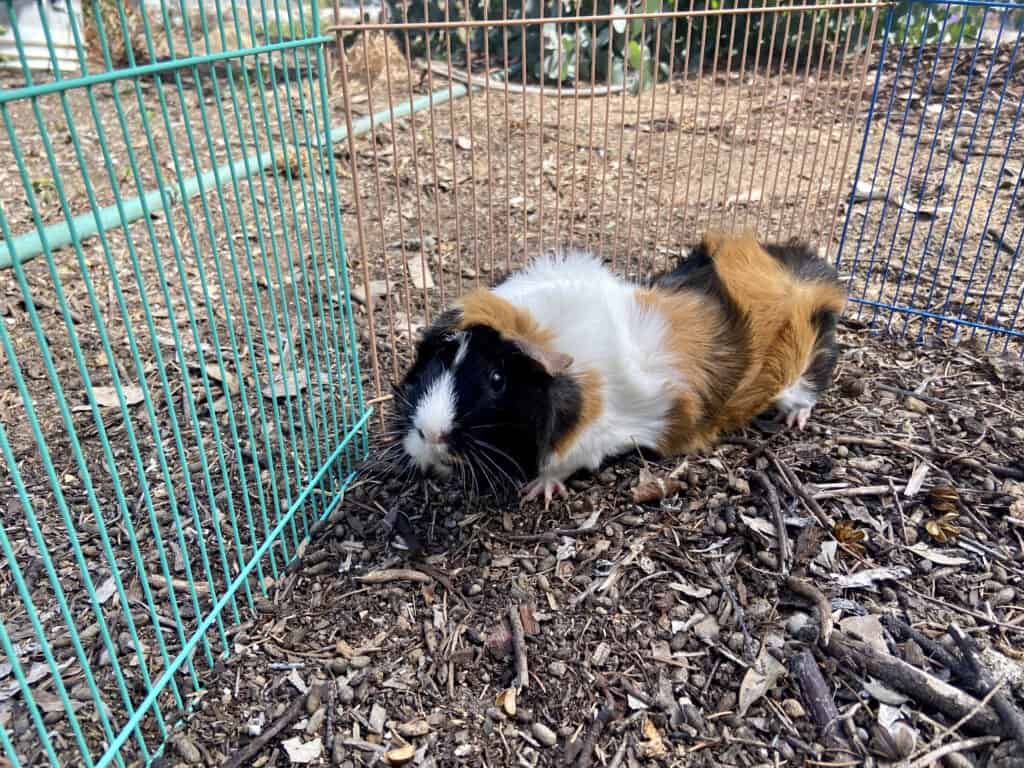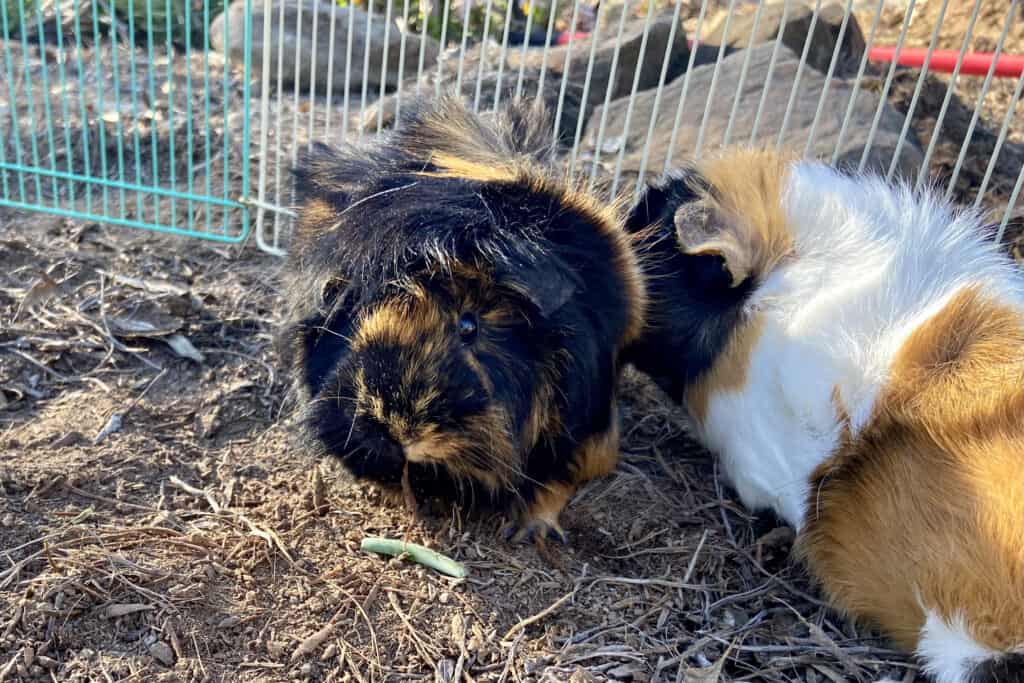As an Amazon Associate we earn from qualifying purchases.
Can guinea pigs eat figs? This is something many guinea pig owners ask since they are curious whether figs are safe for their guinea pigs. The answer is yes, guinea pigs can eat figs. Figs have many health benefits for cavies, including being a good source of fiber, vitamins, and minerals.
However, figs are also known to be extremely sweet and should be given to guinea pigs in moderation.
Read on to learn more about the nutritional value of figs for a guinea pig and how to feed it safely.
Are Figs Safe for My Guinea Pig to Eat?
Yes, figs are safe for your guinea pig to eat. Figs are a high-acid fruit packed with sugar, making them a tasty treat. Not only are they delicious, but figs also offer a wealth of nutritional benefits. Figs are a good source of vitamin C, which helps keep guinea pigs’ immune systems functioning properly. Additionally, figs contain high levels of fiber, which can help keep their digestive systems healthy.

However, it’s important to note that not all parts of the fig are safe for a guinea pig to eat. The branches and leaves of the fig tree can be poisonous to guinea pigs, so it’s best to avoid feeding them these parts of the plant. Additionally, guinea pigs should only eat fresh or dried figs – never frozen or canned figs, as these can contain harmful preservatives.
When feeding guinea pigs figs, it’s best to give them only a small amount at first to see how they react. Some guinea pigs may be sensitive to the high sugar content of figs and may experience diarrhea if they eat too much. If your guinea pig does not have any adverse reaction to eating figs, you can slowly increase the amount you feed them.
Overall, figs are a safe and healthy treat for cavies. Just be sure to feed them in moderation and avoid giving them any parts of the plant that could be poisonous.
Benefits of Feeding Figs to Your Guinea Pigs
Now that we’ve discussed whether eating figs is safe for your guinea pig let’s move on to the pros of feeding figs to your pet.
Improved Digestive Health
When it comes to the digestive health of guinea pigs, figs are a very beneficial snack. The high levels of dietary fiber in figs can help keep the cavy’s digestive system functioning properly and help prevent constipation. Additionally, the vitamin C in figs can help to support the immune system and improve blood clotting.
Many guinea pigs love figs as a tasty treat, and they are a great way to add some variety to their diet. Figs also provide slow-release energy that can help keep your guinea pig’s energy levels stable throughout the day. And finally, figs are a good source of antioxidants that can help fight off diseases.
They Contain Essential Nutrients
Figs are an excellent source of essential nutrients like vitamin C, potassium, and magnesium. Vitamin C is important for the proper functioning of the immune system and can also help improve blood clotting. Potassium is essential for healthy blood pressure, and magnesium is needed for proper muscle function.

Figs also contain a type of soluble fiber called pectin. Pectin can help regulate cholesterol levels and act as a prebiotic, promoting the growth of healthy gut bacteria. All of these nutrients are essential for the overall health of your guinea pig.
Improved Blood Circulation
The high levels of magnesium in figs can help to improve blood circulation. This is important because it can help to prevent the formation of blood clots. Additionally, the potassium in figs can help to regulate blood pressure. These nutrients can also help to improve the health of the cardiovascular system.
Reduced Inflammation
The antioxidants in figs can help to reduce inflammation throughout the body. This is important because chronic inflammation can result in various health problems. The anti-inflammatory properties of figs can help improve your guinea pig’s overall health.
Feeding Figs to Your Guinea Pig
Now that we’ve discussed the pros of feeding figs to your guinea pig let’s talk about how to do it. The best way to feed figs to your guinea pig is to give them fresh or dried figs. You can also give them frozen figs, but make sure to thaw them first.
When giving your guinea pig fresh figs, you can either give them the entire fig or just the flesh. If you’re giving them the entire fig, make sure to remove the stem and leaves first. Guinea pigs can eat both the flesh and skin of a fig, so there’s no need to peel it.
You can also give your guinea pig dried figs as a treat. When feeding dried figs to your guinea pig, make sure to give them a small amount at first. This is because high sugar levels can cause digestive problems if they eat too much. Once you know that your guinea pig can handle dried figs, you can start giving them a larger amount.

Are There Any Side Effects of Feeding Figs To My Guinea Pig?
Since figs are a high-sugar fruit, it’s important to monitor your guinea pig’s intake to make sure they don’t eat too many. Excessive sugar can cause digestive problems like diarrhea.
Another potential side effect of feeding figs to your guinea pig is that they could get too much vitamin K. Too much vitamin K can be bad for your guinea pig’s health, so it’s important to limit their intake.
And finally, figs can also cause constipation in guinea pigs. This is because the high levels of dietary fiber can bind together and form a blockage. If your guinea pig is constipated, you can try giving them a small amount of fig juice to help soften their stool.
Bottom Line
Overall, figs are a healthy and delicious treat for your guinea pig. Just make sure to monitor their intake and look for any potential side effects. If you have any concerns, it’s always best to speak with your veterinarian first.